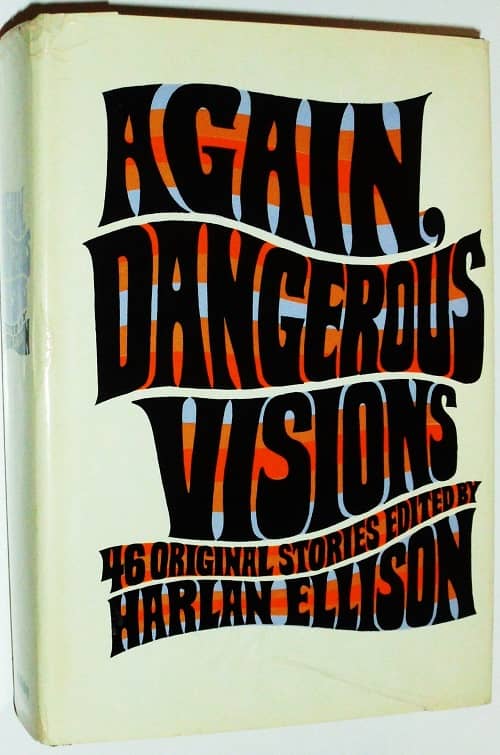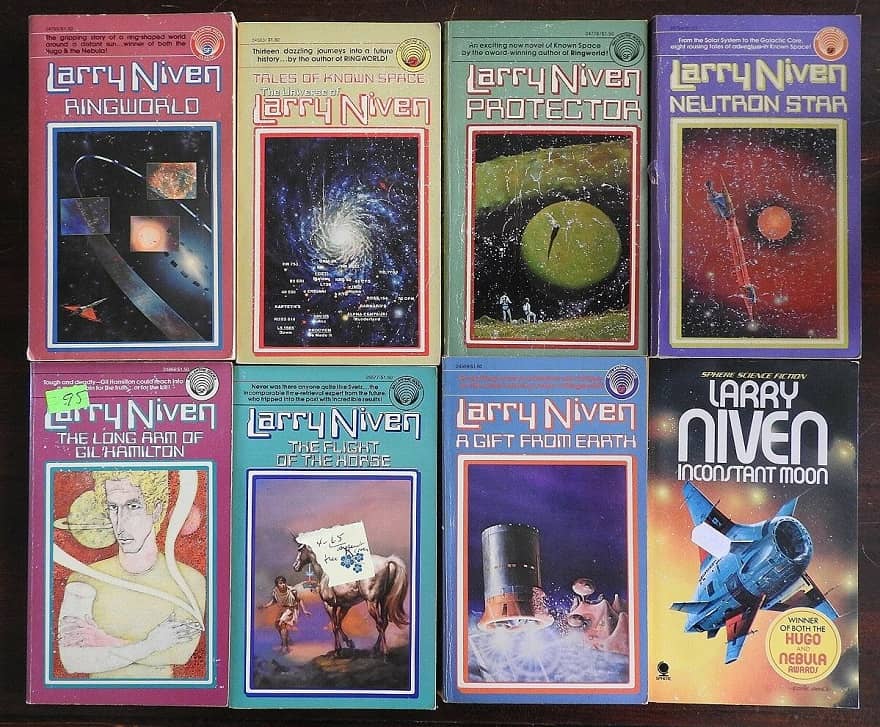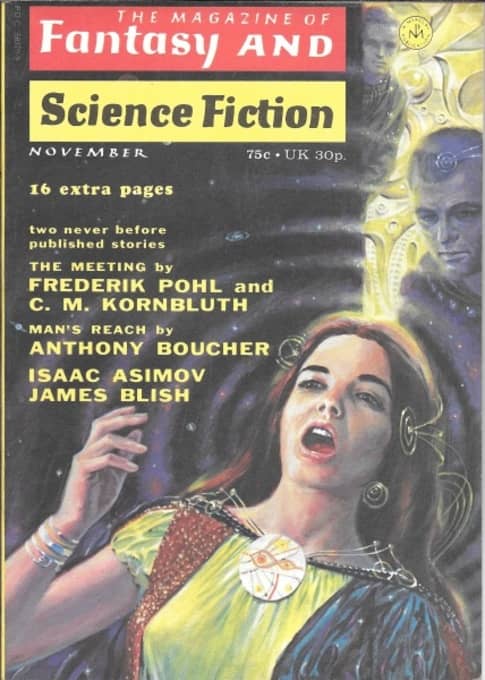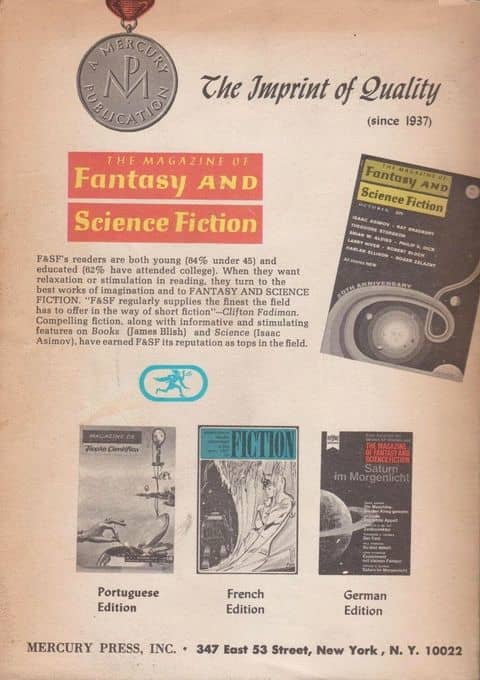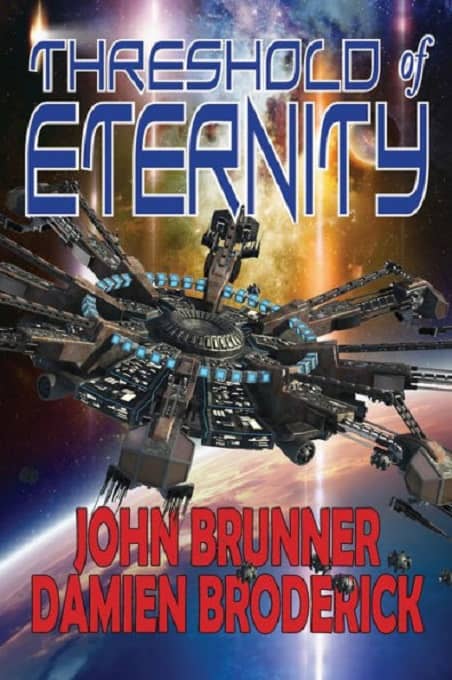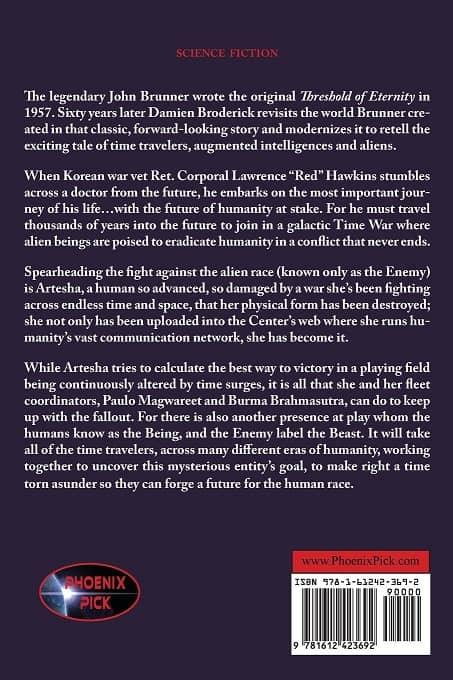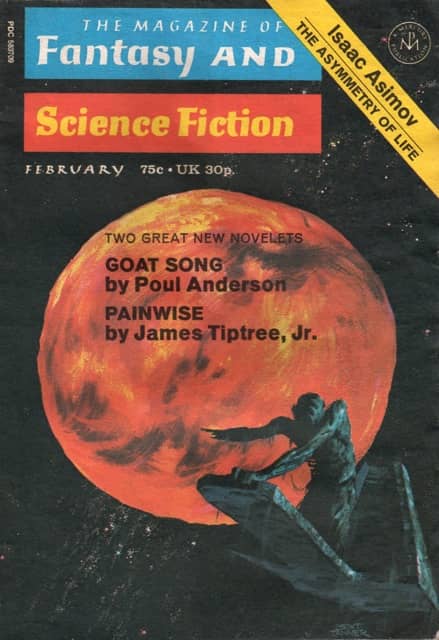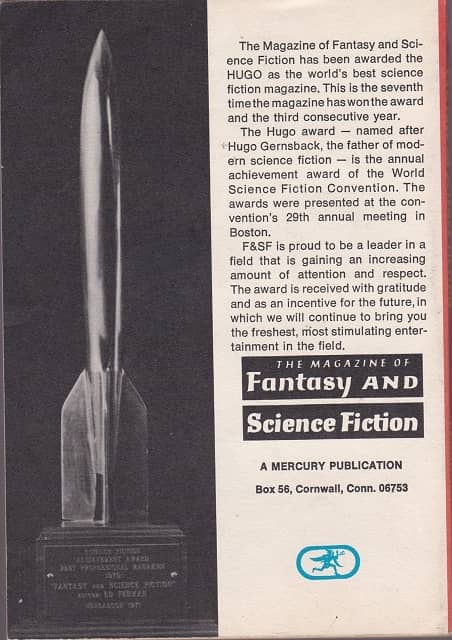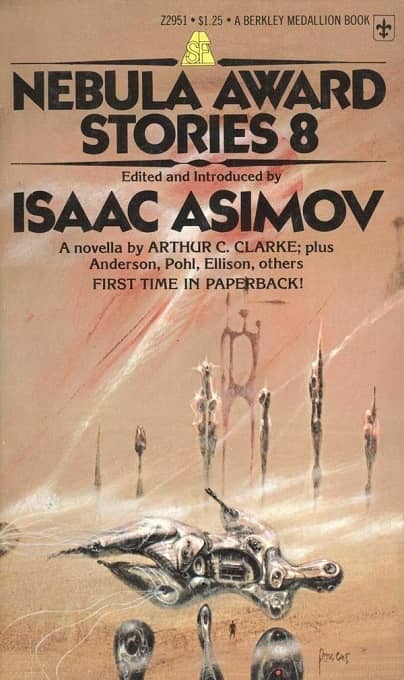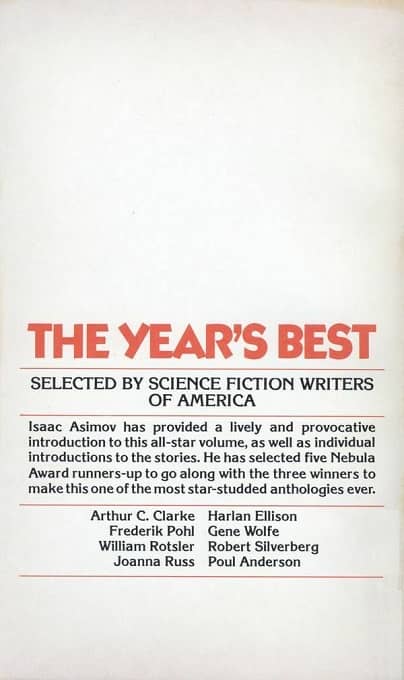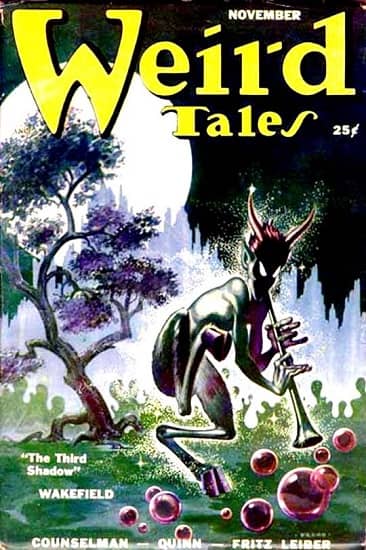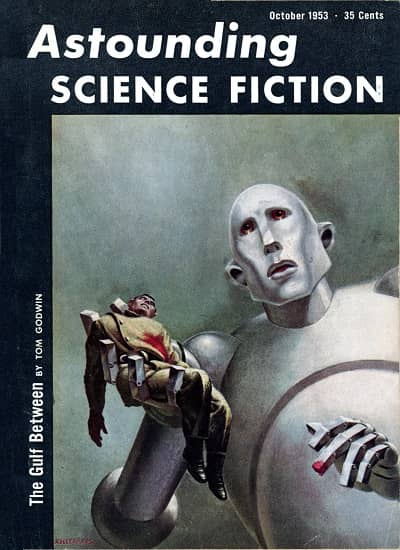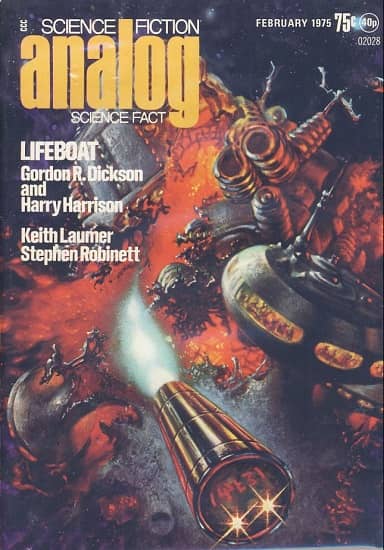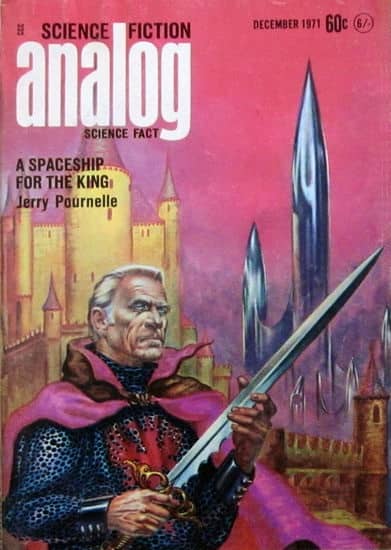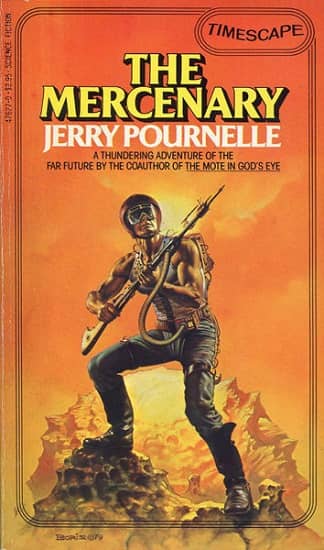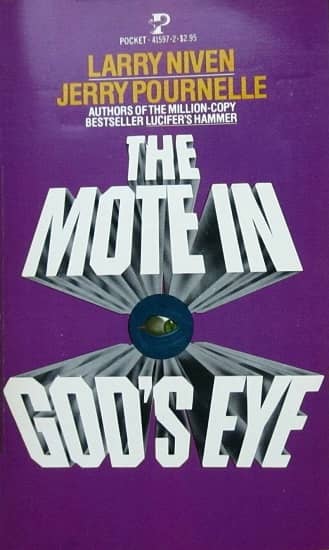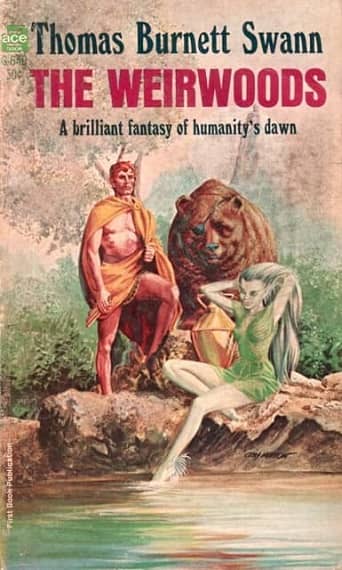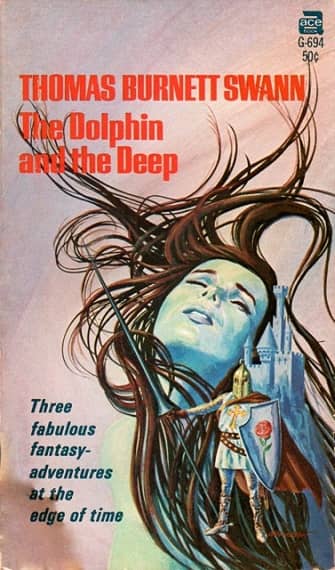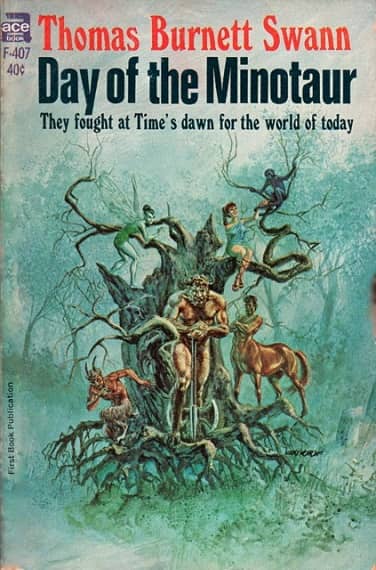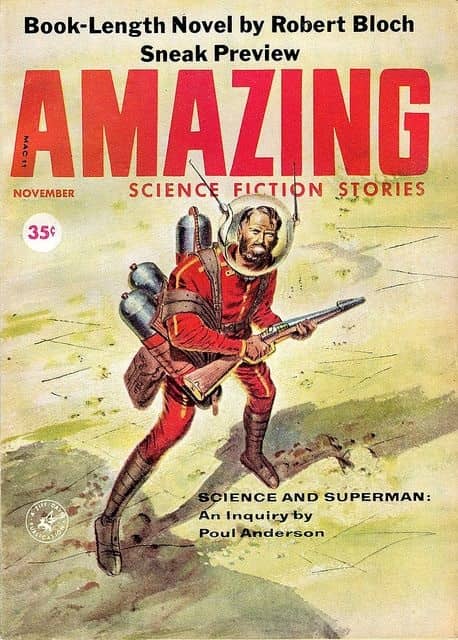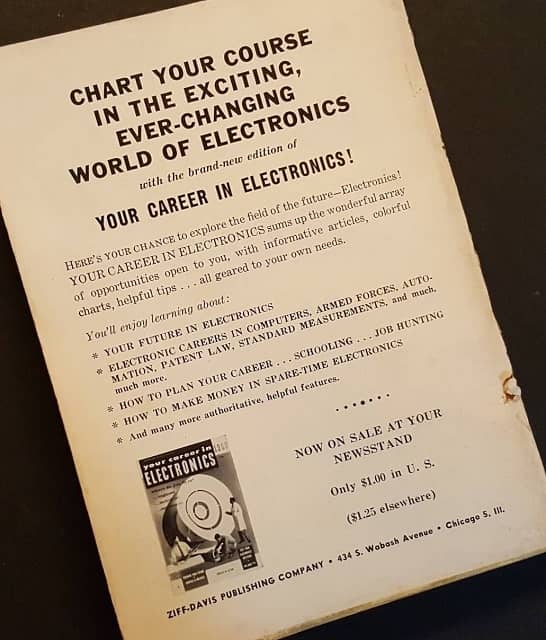The Golden Age of Science Fiction: The 1973 Locus Award for Best Original Anthology: Again, Dangerous Visions, edited by Harlan Ellison (Also, a 1972 Special Award for Excellence in Anthologizing)
Again, Dangerous Visions (Doubleday, 1972)
Steven Silver has been doing a series covering the award winners from his age 12 year, and Steven has credited me for (indirectly) suggesting this, when I quoted Peter Graham’s statement “The Golden Age of Science Fiction” is 12, in the “comment section” to the entry on 1973 in Jo Walton’s wonderful book An Informal History of the Hugos. You see, I was 12 in 1972, so the awards for 1973 were the awards for my personal Golden Age. And Steven suggested that much as he is covering awards for 1980, I might cover awards for 1973 here in Black Gate.
1973 was the second year of the Locus “Original Anthology” award – in 1971, the first year of the Locus Awards, there was an award for Best Anthology/Collection (won by Robert Silverberg for The Science Fiction Hall of Fame Volume I), and in 1972 original anthologies got a separate category (won that year by Terry Carr’s Universe 1.) By 1972 the original anthology boom of the 1970s, fueled by Roger Elwood, was beginning to spike, and there were a lot of candidates, including Carr’s Universe 2, Silverberg’s New Dimensions II, two issues (10 and 11) of Damon Knight’s Orbit, entries from Robert Hoskins’ Infinity series, Harry Harrison’s Nova, Ted Carnell’s New Writings in SF, Michael Moorcock’s New Worlds Quarterly, and, indeed, Roger Elwood, with And Walk Now Gently Through the Fire. And many more. But I don’t think there was any doubt which anthology would win, for this was the year of Harlan Ellison’s Again, Dangerous Visions, the follow-on to the spectacularly successful 1967 book Dangerous Visions. (I should add that Ellison was also awarded a Worldcon Special Committee Award for “Excellence in Anthologizing” for this book, but that was, curiously, at the Worldcon the previous year, 1972, when A,DV had just appeared).)
